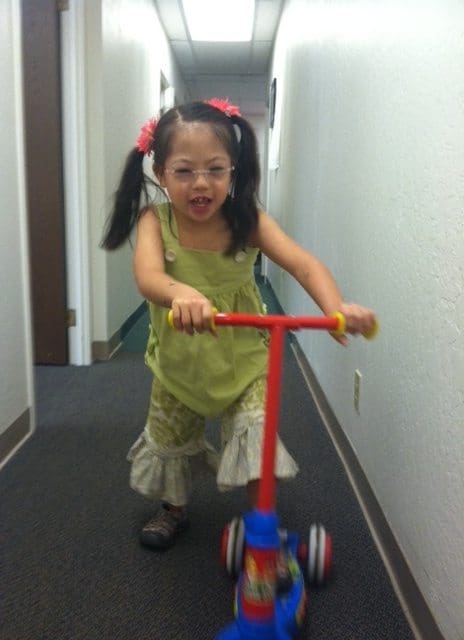The Merriam Webster Dictionary defines participation (in relationship to kids) as ‘the act of joining with others in doing something’. At one point or another during childhood, most kids may struggle to participate in an activity that they are interested in whether because of timing, funding, level of challenge, etc. For kids that have difficulty achieving their milestones or who are delayed in various areas of development, participation in day to day activities or recreational activities may feel like an insurmountable mountain to the child and/or the family. These limitations of participation can often leave them feeling different or left out.
While it’s important to aid a child in achieving milestones in development of individual skills, it is also important to look at how we can impact their participation. For example, if a child is still learning how to walk, but all their friends take dance class and that is something they really want to do, we may look at finding dance classes that allow alternative mobility, or work with the dance class that their friends are in to find ways to include the child. By looking at the big picture of how a child’s limitations are affecting their ability to participate in tasks and activities that are important to them we can make a meaningful impact on the child’s life, while continuing to work on individual skills.
This allows the child to: develop friendships with peers from a young age, interact within their family unit, continue to develop skills while seeing success in an areas of importance, and teaches them that, while they may do something different, they can do it. This also helps a child develop a set of interests and desires that can fuel their internal drive to want to learn ‘that’ skill for themselves which as pediatric therapists, we find to be one of the largest indicators of a child’s potential.
As a result, we find, in order to best serve the children and families we work with, that maintaining the focus of goals and interventions on the big picture things a child and their family want to participate in results in the most meaningful, motivating, and individualized intervention, and is the key to our success as therapists.
